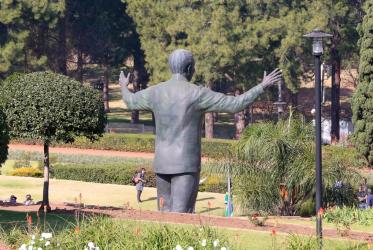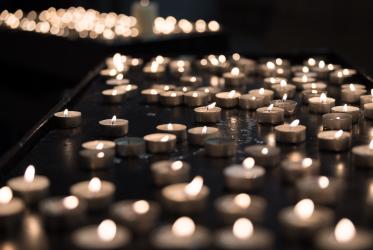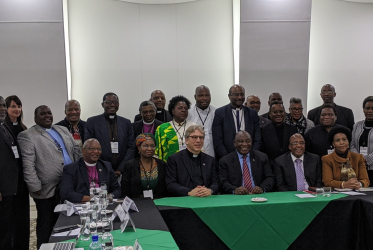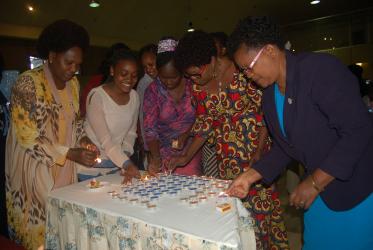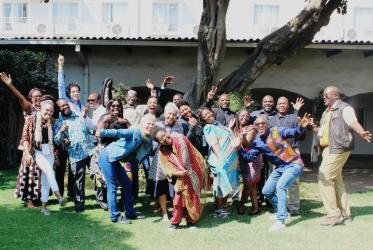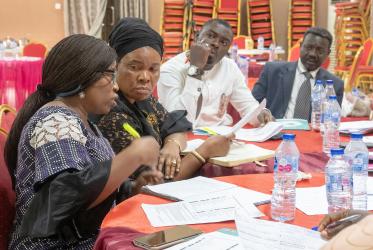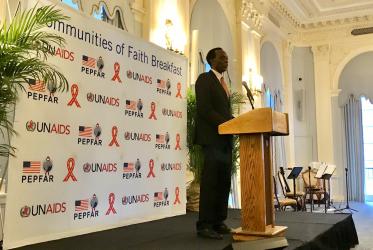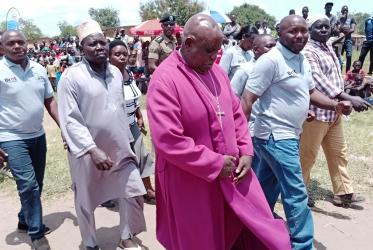Displaying 161 - 180 of 514
South Africans draw hope despite recurring challenges
16 December 2019
WCC delegation meets with South African President Ramaphosa
09 December 2019
South Sudan Council of Churches: peace “is a question of the heart”
11 November 2019
Young people in Togo: “Hear our voice! We want to tell our stories!”
07 November 2019
Youth leaders: “We will stop at nothing” to end HIV and violence
17 October 2019
Churches in southern Africa stand against violence, xenophobia
10 October 2019
Rev. Damon Mkandawire: “A man is a gender justice champion”
03 October 2019
Religious leaders from South Sudan cherish those who host refugees
23 September 2019
African religious leaders express new concerns over South Sudan peace
19 September 2019
Kenya schools invest in young people to end new HIV infections
18 September 2019
